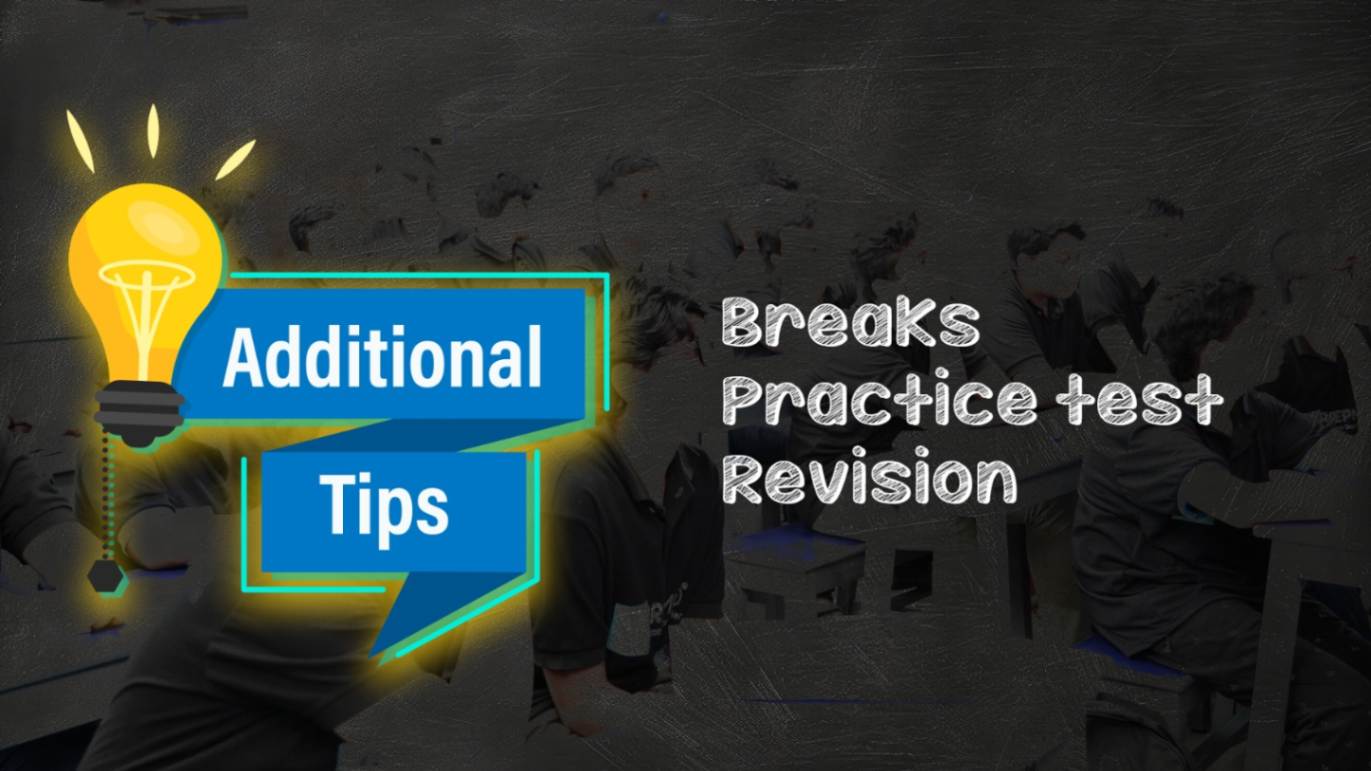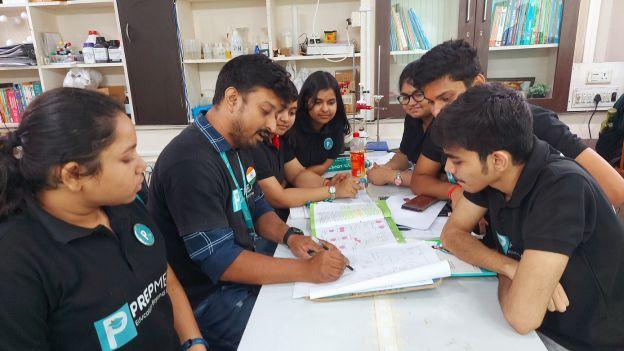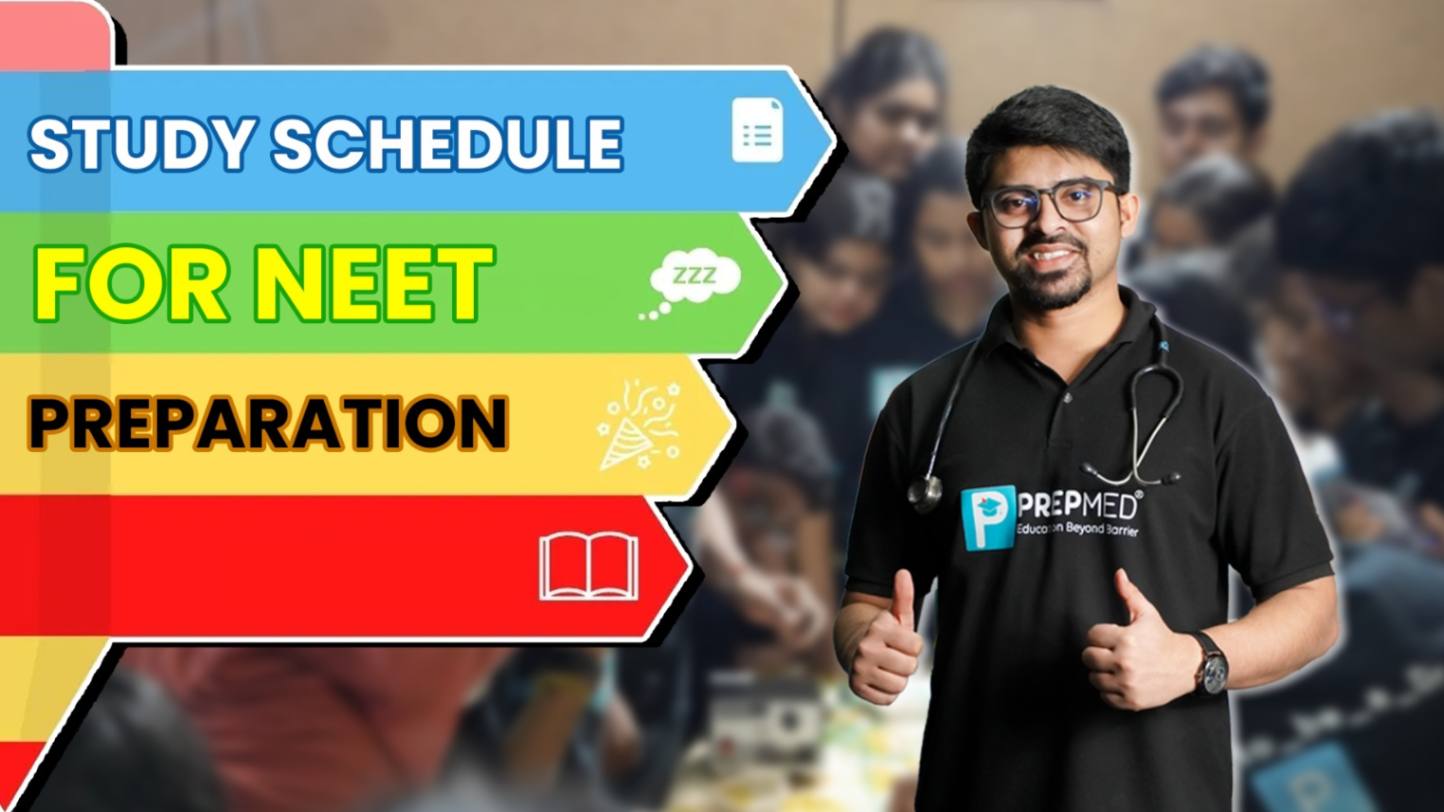September 02, 2024
Study Schedule for NEET Preparation
National Eligibility cum Entrance Test (NEET) requires intense dedication and longer hours to study and understand a wide range of different concepts. As a result for a better score developing a proper schedule with a significant focus on each subject equally can increase academic performance. In addition, to balance all subjects and promote effective study techniques like regular revision and mock tests, the NEET aspirants must follow a strict timetable. A comprehensive timetable for the students planning to appear in the upcoming NEET exam is as follows.
Daily Schedule
The following study routine is developed based on the concept that the student while preparing for the NEET exam will at least give 10 hours to study for the exam daily. The schedule is divided into different day segments, from morning to night, with adequate breaks to relax and sleep for 7 to 8 hours.
1. Morning:
- 6 am - 7.15 am: Biology
- 7.20 am - 8.30 am: Chemistry
- 8.45 am - 10 am: Physics
2. Break: 10 am - 11 am: Breakfast and rest
3. Mid-morning:
- 11 am - 12.15 pm: Physics
- 12.20 pm - 2 pm: Biology
4. Break: 2 pm - 3.15 pm: Lunch and rest
5. Afternoon:
- 3.20 pm - 4.30 pm: Chemistry
- 4.40 pm - 5.45 pm: Biology
6. Break: 5.50 pm - 6.20 pm: Snacks and rest
7. Evening:
- 6.30 pm - 8.20 pm: Revision of difficult topics (go through what you have studied for the whole day)
- 8.30 pm - 9.30 pm: Mock test or practice papers
8. Dinner: 9.40 pm onwards dinner and practicing relaxation techniques
9. Sleep for 7 to 8 hours
Weekly Schedule
Weekdays:
The NEET aspirants are recommended to follow the daily schedule regularly to effectively emphasize the three subjects and revise the necessary study materials to sharpen the studied concept. In addition, practicing with test papers and mock tests can help refine the weak points and polish up the strength of the NEET aspirants. Allocating time to study different topics or chapters of the three dedicated subjects of the NEET exam can ensure effective and comprehensive coverage for the students.
Weekend:
Sundays can be planned with enough time to study and rest longer than the weekdays to decrease the chances of burnout and facilitate productivity.
Morning: Revise with a strict timely mock test of 3 hours 20 minutes of NEET exam relating to the topics studied for the whole week.
Afternoon: Identify and review mistakes that came out in the test.
Evening: Effectively revising the weak areas to replenish the preparation for the NEET exam for 3 hours and planning the topics or chapters for the next week to focus on the three subjects.
Additional Tips

Breaks:
Take adequate intervals between the study sessions throughout the day to significantly boost performance in the NEET preparation and avoid burnout. Following the provided schedule can effectively engender higher efficacy in three subjects equally.
Practice test:
Appearing in strict, timely mock tests or practice papers can stimulate mental preparation for the actual NEET exam and increase confidence among the aspirants.
Revision:

It is important to revise the difficult concepts or weak points by revising those chapters or topics which helps refine the knowledge level of the NEET-preparing students.
Notes:
As a wide range of topics is to be studied by the students while preparing for the NEET exam, making quick notes, summarisation, mnemonics techniques, and pinboards for memorizing formulas, diagrams, or any concepts is recommended.
Health:
Good health and well-being are a big part of better preparation and effective academic performance for NEET aspirants. Thus, the students must also focus on physical and psychological strength and well-being to derive a positive outcome. In addition, consulting with associated healthcare professionals for beneficial consultation and improving overall health is also an important milestone for the students appearing for the NEET exam.
Flexibility:
The recommended schedule is provided for better preparation and improvement of overall performance. However, the NEET students can adjust this study schedule as they progress in their preparation. Moreover, rescheduling based on performance or doubt clearance sessions can increase academic efficacy.
However, it is recommended that willingly avoiding self from blue light exposure while resting or in free time can boost cognitive functional ability and create a positive impact on the body and mind.
For more details on PrepMed and to find the nearest coaching center, visit PrepMed’s official website
Follow Us - on Facebook /Instagram/ YouTube






